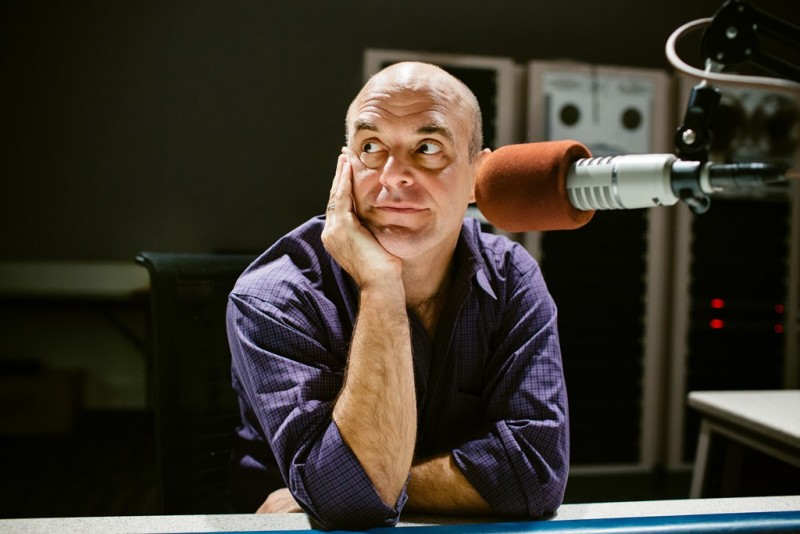When he was told that tickets for the three Wait Wait...Don't Tell Me shows at San Francisco's Nourse Theater in July sold out in six hours, host Peter Sagal wasn't particularly surprised. "As you can imagine, the Bay Area is a pretty good place for us. It's fertile ground for public radio listeners," he noted, adding, "I love San Francisco. It's hard for me to think of a place I'd rather spend three weeks in the summer."
What might surprise longtime listeners about coming to see a live show?
I'm even better looking in person. No, seriously, and I need to be upfront about this, we don't offer much in terms of visual appeal. It's a radio show. There are no dance numbers. No elaborate set changes — or sets, for that matter. We pretty much stand still because our sound quality demands that we mostly use wired equipment. Yet people really enjoy the show. In addition to the thrill of seeing us in person, I think the appeal is seeing that a lot of our best stuff happens in the moment. There's also a lot of awesome stuff that can't be broadcast, so there's always the "come hear the dirty stuff" appeal.
Do you know yet who the panelists for the San Francisco shows will be?
We haven't scheduled the panelists yet. We will certainly get some folks up from L.A. And Bill Kurtis will be there as scorekeeper.
How involved are you with scriptwriting for the show?
I am very involved with the writing. Thankfully, I don't do it all, because I work with people who are much funnier than I am. By letting them contribute, I sound a lot funnier.
One of the great glories and tragedies of my job is that we'll spend all week on a joke — writing and rewriting, arguing about which word is funnier. Then I'll try it in front of the audience, and it's immediately topped by something the panelists say off the top of their head. We can work on material all week, but if a panelist says something off the cuff that people go nuts over, our joke might not even air. But it's a small price to pay to broadcast a radio show that's actually funny.
